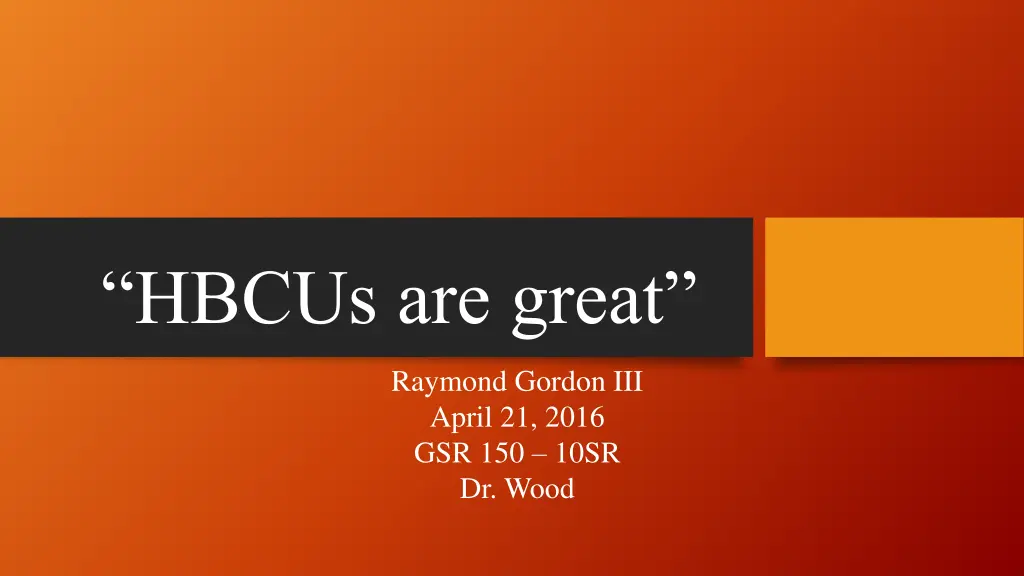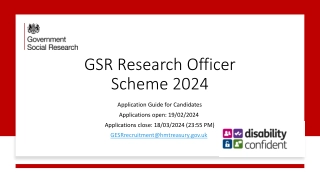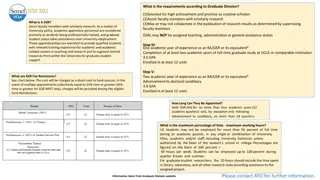
Benefits of Attending Historically Black Colleges & Universities (HBCUs)
Discover the valuable advantages of connecting with HBCUs, including strong community ties, smaller classes, and supportive environments. Explore personal insights and experiences that highlight the unique benefits offered by Historically Black Colleges & Universities.
Download Presentation

Please find below an Image/Link to download the presentation.
The content on the website is provided AS IS for your information and personal use only. It may not be sold, licensed, or shared on other websites without obtaining consent from the author. If you encounter any issues during the download, it is possible that the publisher has removed the file from their server.
You are allowed to download the files provided on this website for personal or commercial use, subject to the condition that they are used lawfully. All files are the property of their respective owners.
The content on the website is provided AS IS for your information and personal use only. It may not be sold, licensed, or shared on other websites without obtaining consent from the author.
E N D
Presentation Transcript
HBCUs are great Raymond Gordon III April 21, 2016 GSR 150 10SR Dr. Wood
Thesis Statement There are 3 main benefits of attending or interacting with the campuses of HBCUs: the connection to community and family and friends for life, smaller classes and supportive atmosphere, caring and supportive faculty.
Introduction Historically Black Colleges & Universities (HBCUs) are havens of opportunity for students of color (What is HBCU? n.d.). My sister attended and graduated from HBCU (Southern Univesity at Baton Rouge). The benefits range from the amount of students in the classrooms. At HBCU s, students are able to feel a strong sense of pride and community once you re on the campus of one of these universities (Why College-Ready African-American Students Should Consider an HBCU, 2012).
Connection to Socialization with Community The most valuable benefit of attending or connecting with an HBCU is the connection to community and family and friends for life. Personal commutation with Rhea she was able to build social relationships at HBCU (R. Gordon, personal communication, April 1, 2016). Howard University (HU) student was able to build friendships by participating in certain activities (K. Jackson, personal communication, April 1, 2016). Joining a fraternity helped HU student to become more of a social person (A. Freeman, personal communication, April 1, 2016).
Smaller Classes and Supportive Atmosphere With smaller size classrooms, professors can provide more personal attention to their students. With HBCU, you tend to feel like you re amongst family, people who care about you and not just a person taking a seat. You re less on your own at an HBCU -- the struggle to make good grades is harder at a college with large impersonal.
Supportive Faculty The percentage of black faculty in HBCU are usually 96% (Where are all the black college faculty? Washington Post, 2015). My sister, Rhea s experience at HBCU -- the classrooms were a lot smaller and the teachers knew her name and addressed her daily (R. Gordon, personal communication, April 1, 2016). The faculty at HBCU are more supportive, due to knowing and realizing the struggle of getting an education.
Conclusion HBCUs were built for African American to have an equal opportunity at higher education. My father attended Southern University in New Orleans (SUNO) which is a HBCU in New Orleans. He holds this experience very dear, because even though doors were starting to open for blacks to attend other universities, the cultural followed in the footsteps of their forefathers. According to Mr. Gordon (R. Gordon Jr, personal communication, April 1, 2016). My sister followed my father s footsteps by attending an HBCU. Due to my disability, I chose not to follow the family tradition of attending an HBCU. I have a very unique background for an African American family.
References What is HBCU? (n.d) www.ucangotocollege.org/what-is-hbcu. Retrieved on April 20, 2016. Why College-Ready African-American Students Should Consider an HBCU. (2012, September 27). Retrieved April 21, 2016, from http://education.cu-portland.edu/blog/reference- material/why-college-ready-african-american-students-should-consider-a-hbcu/ It s 2015. Where are all the black college faculty? (2015, November 12). Retrieved April 22, 2016, from https://www.washingtonpost.com/news/answer-sheet/wp/2015/11/12/its-2015- where-are-all-the-black-college-faculty/ Fryer, R. G., & Greenstone, M. (2010). The changing consequences of attending historically black colleges and universities. American Economic Journal.Applied Economics, 2(1), 116-148. doi:http://dx.doi.org/10.1257/app.2.1.11 Ogunyipe, B. 2011. n.d. Black Deaf Culture Through the Lens of Black Deaf History. National Association of the Deaf. Retrieved on February 23, 2016. URL: https://dcmp.org/ai/366/#author
Thank you for your time and attention.





















